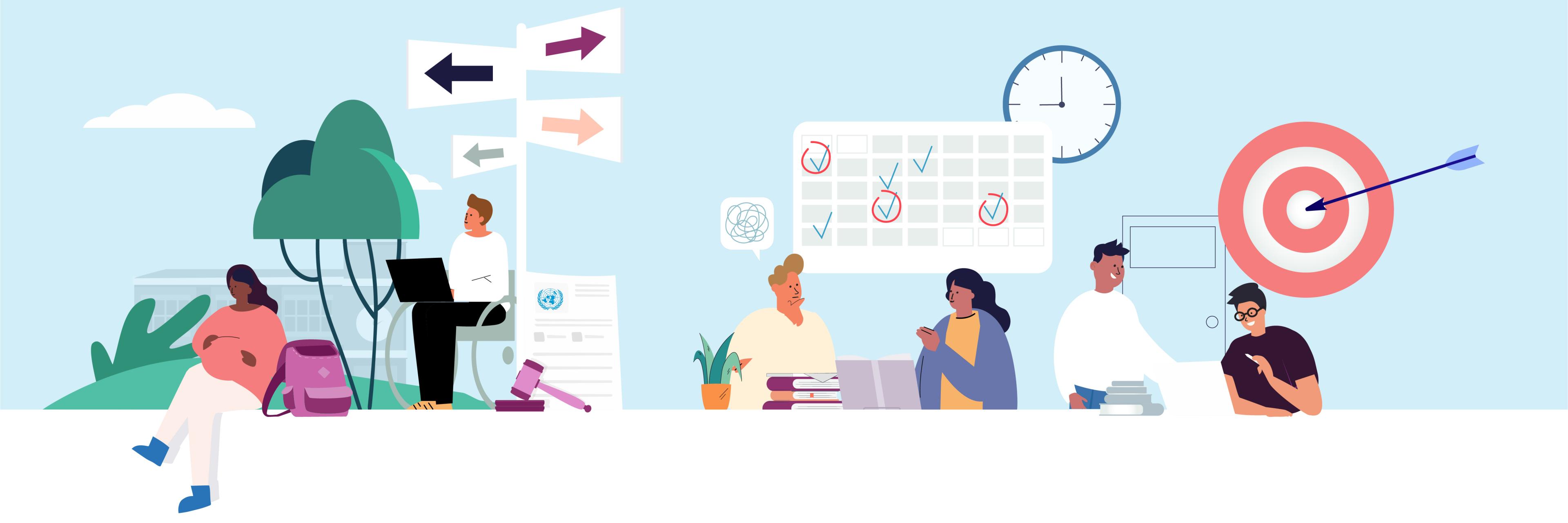
Characteristics of muscle disorders
Because of your muscle disorder, you may have trouble reaching the school building, for instance because there are raised kerbs or thresholds or there is no disabled parking space nearby. You may have trouble completing assignments as part of your degree programme or internship. This might result in a study delay or an inability to take part in certain exams, projects or practical assignments. The company where you do your internship might not be properly accessible for wheelchair users or might not have special desk chairs so you can sit comfortably. The symptoms of your disorder may make it difficult for you to attend in-person education or take part in an internship. This might cause you to incur a study delay.
This is what I deal with
Obstacles faced by students with a muscle disorder
- Problems with getting places/physical accessibility. Is your school not designed in an accessible way, for instance because there is no lift? In that case, you can request certain adjustments.
- Problems with an internship or a job. When you have a neurological disorder, it can be difficult to find – or keep – an internship or job. You might need help finding an internship spot. Once you have found an internship, it is important to make solid agreements about the tasks you are able to do and the number of hours you can spend on the internship.
- Lack of energy. You often experience a lack of energy as a result of your condition. This may negatively impact your ability to keep up with course work, attend lectures and take exams.
- Problems with the attendance requirement. You cannot always be present for lectures, either due to fatigue or because you have a doctor’s appointment or hospital visit.
- Transportation problems. The symptoms you experience might make accessible/modified transport necessary or mean that you need to park your car close to your educational institution or internship.
- Housing-related problems. You may need adjusted housing or a modified student room.
- Problems using a computer. Because of your chronic illness, you may need certain aids in order to use a computer effectively.
Even though these obstacles may cause difficulties, you can rest assured that more than enough tools and solutions are available that can help you successfully complete your degree programme. In the preceding section, click on the obstacle you are facing with which you could use some help. You can then read a lot more about that topic and find additional tips and tools. If your specific obstacle is not mentioned above, please refer to the comprehensive list of obstacles.
This is what I might need
Support and facilities for students with a muscle disorder
- Transportation. You may need adjusted transportation. Or you might need to park your car close to school. In that case, you can request a disabled parking permit.
- Testing facilities. You may find it helpful to have extra time to take your tests or exams, to use a laptop or to space them out over a longer period of time. You can also discuss the possibility of alternative forms of assessment, such as doing a take-home test rather than a written test on site.
- Help finding an internship spot or job. If you are having a hard time finding an internship or a job, you can ask the internship coordinator or supervisor for extra assistance.
- Extra time to complete your studies. You should meet with your study adviser to discuss your options. If you incur a study delay due to special circumstances, you can also apply for a performance grant from the Education Executive Agency (DUO) (submitted via the student counsellor). The grant extends the period for which you receive student finance.
- Financial schemes. A number of financial schemes are available for students who incur a study delay or are unable to have a part-time job due to their disability. Click the link to see which schemes you might be eligible for.
Have a look at the other facilities that might be helpful for you, too.
Tips
Do not wait to ask for help
Every student is different, and every individual needs a different type of help. It is important to explore the options and find what works for you. Do not be afraid to ask for help at the first signs of trouble. Asking for help is actually a sign of strength, because it lets others know how much you want to succeed in your degree programme. Talk to a study adviser for your programme and ask them about the possibilities available to you. It is a good idea to take a moment first to write down what you need and what kind of support you think would be helpful to you. You should immediately seek help if you run into obstacles to your education because of your special needs. Together, you can explore whether this might affect rules such as the binding study advice (BSA) or the attendance requirement and how they apply to you.
If you encounter obstacles in your education, do not wait to report them
If you run into obstacles as a result of your special needs, you can look at how this will affect rules such as the BSA or the attendance requirement together.
Organisations
Through the tool 'Hulpwijzer'[Help Guide], you can find organisations that have expertise on your support needs. Check out the possibilities.